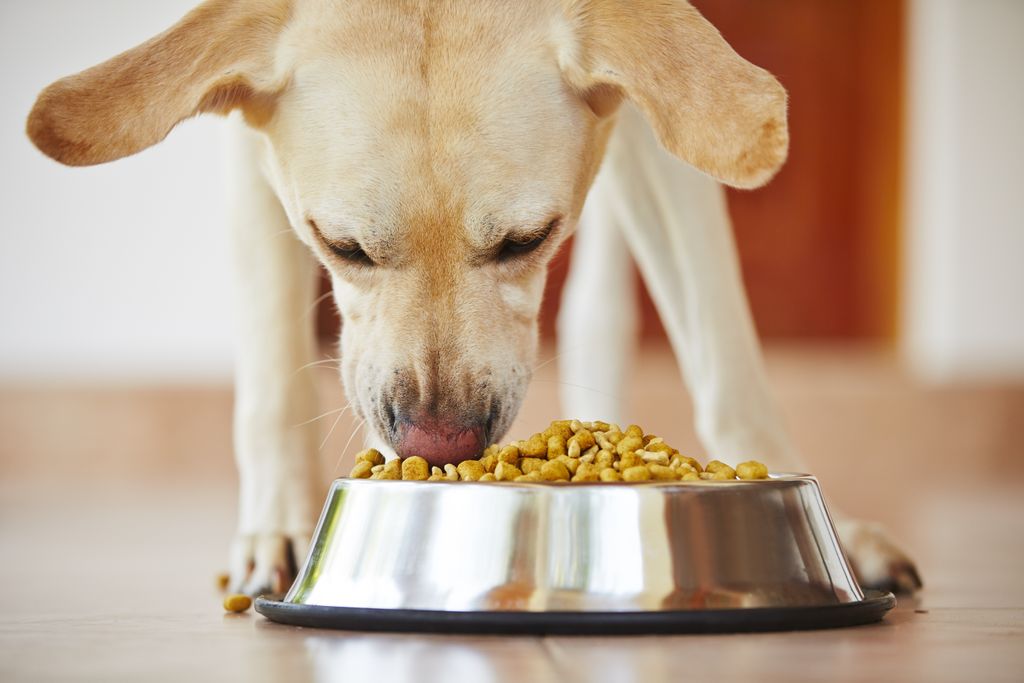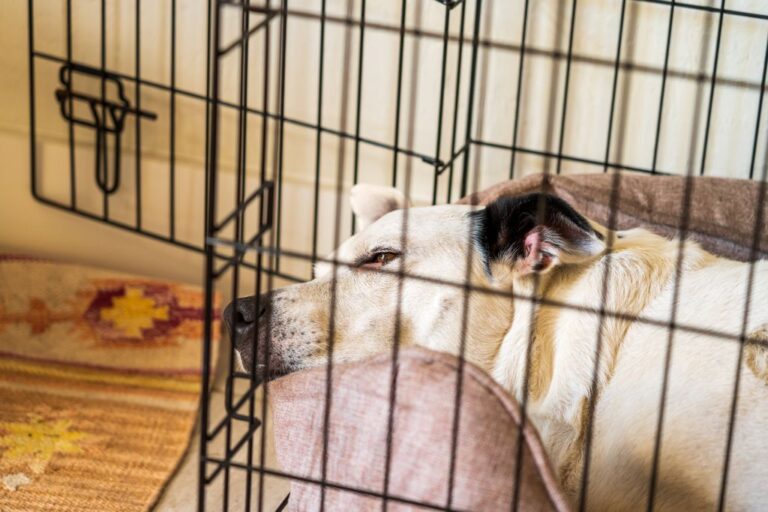Why Is Your Dog Not Eating? Common Causes and Solutions
It can be concerning when your dog refuses to eat, as it may indicate an underlying issue. In this article, we will explore the common causes of why your dog is not eating and provide practical solutions to help address the problem. By understanding the reasons behind your dog’s lack of appetite, you can take appropriate steps to ensure their health and well-being.
Key Takeaways
- Picky eating behavior can be addressed by gradually introducing new foods and creating a consistent feeding schedule.
- Signs of stress or anxiety in dogs include decreased appetite, excessive panting, and restlessness.
- Common illnesses that affect appetite in dogs include gastrointestinal issues, dental problems, and infections.
- If your dog’s food is spoiled or rancid, it can lead to a loss of appetite. Check the expiration date and storage conditions of the food.
- Maintaining your dog’s dental health is crucial for their overall well-being. Regular brushing and dental check-ups can prevent dental issues that may affect their appetite.
Is Your Dog Being Picky?

Understanding Picky Eating Behavior
When it comes to dogs and their eating habits, sometimes they can be quite picky. It’s not uncommon for our furry friends to turn their noses up at certain foods, leaving us wondering why. But don’t worry, we’ve got some tips to help you encourage your dog to eat.
Tips to Encourage Your Dog to Eat
When it comes to getting our furry friends to eat, we’ve tried it all. From fancy gourmet meals to homemade treats, we’ve done everything we can to entice them. But sometimes, our dogs can be a little stubborn. They have their own preferences and tastes, just like us. So, what can we do to make mealtime more appealing for them?
Is Your Dog Stressed or Anxious?

Ways to Reduce Stress for Your Dog
Reducing stress for our furry friends is crucial to their overall well-being. Dogs can experience stress and anxiety in various situations, such as when they are left alone for long periods or when they encounter loud noises. It is important for us to understand their needs and provide a safe and calming environment. Here are some ways we can help reduce stress for our dogs:
- Establish a Routine: Dogs thrive on routine, so it’s important to establish a consistent daily schedule for feeding, exercise, and playtime.
- Provide a Comfortable Space: Creating a designated area where your dog feels safe and secure can help reduce their stress levels.
- Engage in Calming Activities: Activities like gentle walks, puzzle toys, and interactive play can help alleviate stress and provide mental stimulation.
Remember, a happy and stress-free dog is a healthy dog!
Is Your Dog Ill or In Pain?
Common Illnesses That Affect Appetite
When it comes to our furry friends, it’s important to keep an eye on their appetite. Sometimes, a decrease in appetite can be a sign of a severe health problem. If your dog suddenly loses interest in food and shows other concerning symptoms, it’s crucial to seek veterinary care immediately. Ignoring these signs could lead to further complications and delay necessary treatment. Remember, our dogs rely on us to take care of their health and well-being.
When to Seek Veterinary Care
If you notice any sudden changes in your dog’s eating habits or appetite, it’s important to seek veterinary care. Our furry friends can’t tell us when something is wrong, so it’s up to us to pay attention to their behavior and take action. Ignoring these changes can lead to more serious health issues down the line. At USADogShop.com, we believe in the well-being of every dog, which is why we recommend consulting with a veterinarian if you have any concerns.
Is Your Dog’s Food Unappetizing?

Checking for Spoiled or Rancid Food
When it comes to our furry friends, we always want to make sure they’re eating the best food possible. One common reason for a dog’s loss of appetite is spoiled or rancid food. Just like humans, dogs can be sensitive to the quality of their food. If you notice that your dog is not showing interest in their meals, it’s important to check for any signs of spoiled or rancid food.
Enhancing the Taste of Your Dog’s Food
When it comes to enhancing the taste of your dog’s food, we’ve tried a few different tricks that have worked for us. One thing we’ve found helpful is adding a small amount of wet food to their kibble. This can give it a boost of flavor and make it more enticing for your dog. Another option is to mix in some broth or stock to add moisture and enhance the taste. You can also try sprinkling a little bit of grated cheese or cooked meat on top of their food to make it more appealing. Experimenting with different flavors and textures can help stimulate your dog’s appetite.
Is Your Dog Experiencing Dental Issues?

Signs of Dental Problems
When it comes to dental problems, there are a few signs that you should look out for. One of the most common signs is chewing on one side of the mouth or avoiding hard food altogether. This could indicate that your dog is experiencing pain or discomfort while eating. Another sign to watch for is bad breath. If your dog’s breath smells unusually foul, it could be a sign of dental issues. Additionally, you may notice bleeding gums or loose teeth. These are all signs that your dog may be experiencing dental problems and should be seen by a veterinarian.
Taking Care of Your Dog’s Dental Health
When it comes to taking care of our dog’s dental health, we need to be proactive. Regular home dental care is essential to prevent dental problems and keep our furry friends happy and healthy. Here are a few tips to help you maintain your dog’s dental hygiene:
- Brush their teeth regularly using a dog-friendly toothbrush and toothpaste.
- Provide dental chews that can help remove plaque and tartar buildup.
- Offer dental toys that encourage chewing and promote dental health.
Remember, a healthy mouth leads to a healthy dog!
In Conclusion
Remember, if your dog is not eating, it could be due to a variety of reasons. Understanding their behavior and addressing any underlying issues is key. Encourage them to eat by trying different strategies and making their food more appealing. Reduce stress and anxiety in their environment to promote a healthy appetite. Monitor their dental health and seek veterinary care if necessary. And always remember to consult with a professional if you have any concerns. With a little care and attention, you can help your dog regain their appetite and ensure their overall well-being.
Frequently Asked Questions
Why is my dog not eating?
There could be several reasons why your dog is not eating, including picky eating behavior, stress or anxiety, illness or pain, unappetizing food, or dental issues.
How can I encourage my dog to eat?
You can try offering a variety of food options, feeding at regular times, creating a calm eating environment, and consulting with your veterinarian for advice.
What are the signs of stress or anxiety in dogs?
Signs of stress or anxiety in dogs may include decreased appetite, excessive panting, pacing, restlessness, trembling, or changes in behavior.
How can I reduce stress for my dog?
You can reduce stress for your dog by providing a consistent routine, creating a safe and comfortable environment, engaging in regular exercise and mental stimulation, and using calming techniques such as massage or music therapy.
When should I seek veterinary care if my dog is not eating?
You should seek veterinary care if your dog’s lack of appetite persists for more than 24 hours, is accompanied by other concerning symptoms, or if you suspect an underlying medical condition.
What can I do if my dog’s food is spoiled or rancid?
If you suspect your dog’s food is spoiled or rancid, it is best to discard it and replace it with fresh food. Proper storage and regular inspection of food can help prevent this issue.






